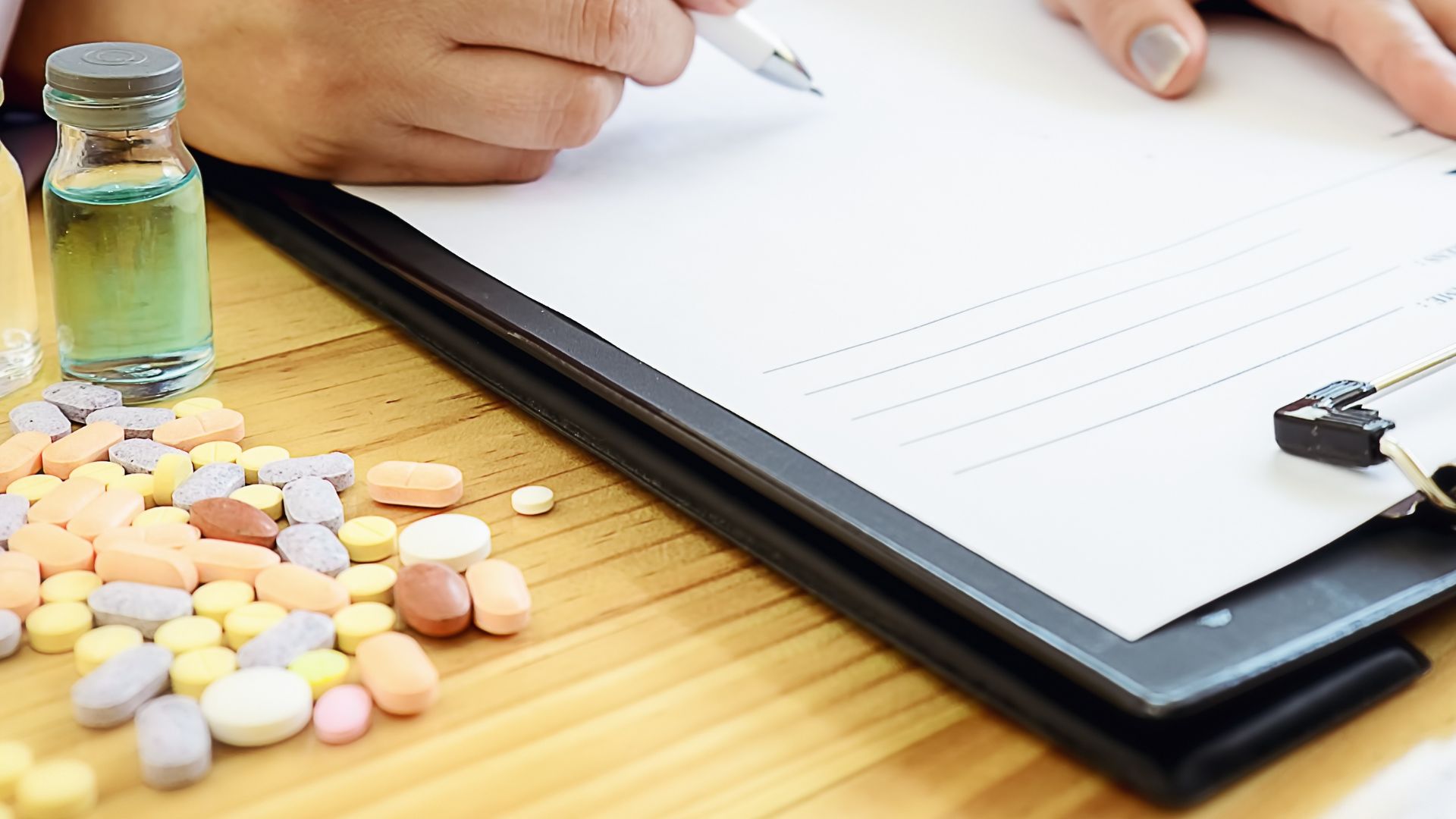Thinking about stopping steroids?
Jun 17, 2025
Read this first before you decide
Are you wondering if you can stop taking steroids on your own? Maybe you’re feeling better and think you don’t need them anymore. I’ve been there too. But before you make that decision, it’s important to understand the risks of stopping steroids too quickly, and why you must consult your doctor first.
Steroids like prednisolone, budesonide (Cortiment), and other corticosteroids help control inflammation in conditions such as IBD, autoimmune diseases and other chronic inflammatory disorders. However, stopping them suddenly can cause serious withdrawal symptoms and even trigger a severe flare-up of your condition.
In this article, you’ll learn:
✔ Why you should never stop steroids suddenly
✔ What happens to your body when you taper off steroids
✔ How to support your body naturally during withdrawal
✔ How to reduce flares and extend remissions after stopping steroids
Why you can’t just stop taking steroids on your own
Steroids replace or supplement your body’s natural cortisol production, which helps regulate inflammation and energy levels. When you’ve been on steroids for a while, your adrenal glands reduce their own cortisol production because they don’t need to make as much.
If you suddenly stop taking steroids, your body can’t ramp up cortisol production fast enough, leading to:
✔ Extreme fatigue: Your body relies on cortisol to maintain energy.
✔ Joint pain & inflammation flares: Without steroid support, inflammation can rebound.
✔ Dizziness, nausea, and low blood pressure: Cortisol helps regulate fluid balance.
✔ Mood swings or depression: A sudden drop in cortisol can affect brain chemistry.
✔ Severe withdrawal symptoms: If you’ve been on steroids long-term, your adrenal glands may not produce enough cortisol, which can be dangerous.
The safest way to stop steroids is through a gradual taper, where the dosage is reduced slowly over time, and with your doctor monitoring the process. If symptoms flare while tapering, it may indicate that your body needs more time to adjust.
When the doctor says it is safe to taper
Once you’ve confirmed with your doctor that it’s the right time to come off steroids, you can take steps to help your body recover naturally.
Support your adrenal glands
Your adrenal glands need to increase cortisol production again, and certain nutrients can help:
✔ Vitamin C: The adrenals use a lot of vitamin C to produce cortisol. Eat citrus fruits, peppers and berries.
✔ B5 (Pantothenic Acid) & B6: Essential for adrenal function. Found in eggs, fish, avocados and leafy greens.
✔ Magnesium & Zinc: Help regulate the stress response. Found in pumpkin seeds, nuts and dark leafy greens.
✔ Electrolytes (Sodium & Potassium): Cortisol helps regulate fluid balance, so keep hydrated with sea salt, coconut water or broth if you feel dizzy.
Reduce inflammation naturally
Since steroids are anti-inflammatory, your body may experience a temporary flare-up of pain or stiffness. These natural anti-inflammatories can help:
✔ Curcumin (turmeric) & boswellia: Help regulate inflammation without affecting adrenal function.
✔ Omega-3s: Found in oily fish, walnuts and flaxseeds, omega-3s can help calm inflammation.
✔ Ginger & cherry juice: Both have been shown to help with joint pain and muscle recovery.
Manage stress and cortisol production
✔ Gentle exercise: Walking, yoga or stretching supports circulation and doesn’t overload the body.
✔ Breathing & relaxation: Techniques like 5-5 breathing (inhale 5s, exhale 5s) help balance the nervous system and prevent excess stress on the adrenals. You can listen to a free relaxation on my YouTube channel.
✔ Liquorice root (if safe for you): Helps prolong cortisol activity slightly, making the transition easier (avoid if you have high blood pressure).
✔ Good sleep: Cortisol production follows a daily rhythm, peaking in the morning and dropping at night. Sleep helps restore this cycle.
✔ Adaptogenic herbal teas: Chamomile, passionflower or reishi mushroom can support relaxation and adrenal recovery.
What if you’re experiencing a sudden return of symptoms?
If your symptoms come back strongly while tapering, it could mean:
✔ You’re tapering too fast. Your body isn’t adapting quickly enough.
✔ Your condition still needs some steroid support. It’s not always the right time to stop.
✔ Your inflammation is rebounding. You may need an adjusted treatment plan.
If this happens, do not push through but speak to your doctor. You may need to slow the taper or temporarily pause it.
How long does it take to recover from steroids?
It depends on how long you were on them. Short-term users may recover in a few weeks, while long-term users might take months.
Beyond steroids: Strengthening your body for long-term remission
If you’re in the process of tapering off steroids, or thinking about it, you might also be wondering how to stay in remission longer and reduce the risk of future flares. Steroids help manage symptoms, but long-term health comes from strengthening your body naturally.
✔ Supporting gut health
✔ Reducing chronic inflammation
✔ Strengthening your immune system
✔ Identifying personal triggers for flares
If you want to go beyond steroids and look at ways to extend your remissions, reduce flares and support your body naturally, I’d love to help. Whether through nutrition, lifestyle changes or targeted strategies that fit your needs, I can support you in building long-term resilience.
If you're ready to take the next step, let’s talk.
If this blog resonated with you, there is much more I’d love to share. My course and personal consultations walk you through the practical steps, support and guidance that bring real change. I would love to help you. Message me to arrange a chat to see if we are a good fit.

